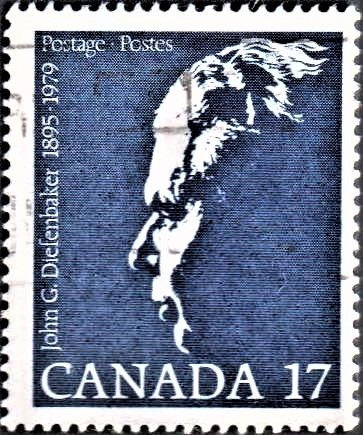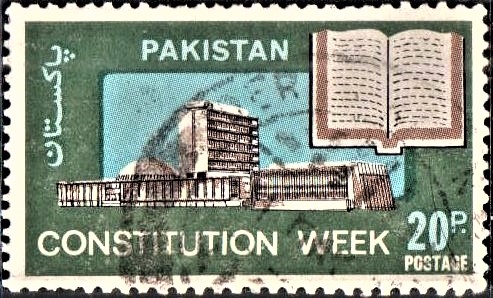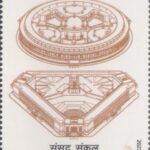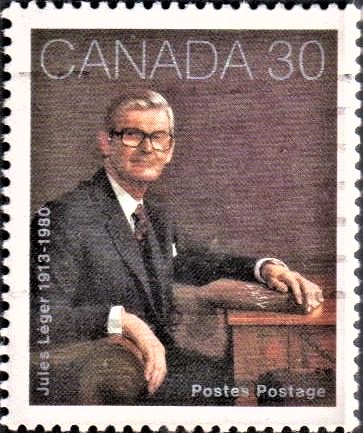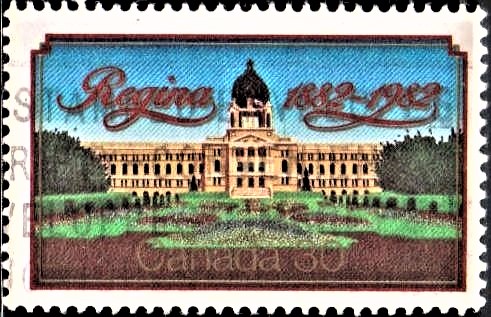
Regina
A commemorative postage stamp on the Centenary (1882-1982) of Regina, capital of Saskatchewan, Canada :
 Issued by Canada
Issued by Canada
Issued on Aug 3, 1982
Design : The painting of the stately legislature building, a familiar and significant Regina landmark, was provided by resident artist David Thauberger. Robert Russell and Kim Martin of Toronto used red and gold in their stamp design to signify that Regina‘s centennial is cause for celebration as well as commemoration.
Type : Stamp, Postal Used
Colour : Multi Colour
Denomination : 30 Cents
About :
- As if by magic, Regina sprang from the prairie in 1882, a creation of the federal government and the CPR. In the hundred years since then, few cities have so skillfully capitalized on their natural assets.
- In 1882 Edgar Dewdney, Lieutenant Governor of the Northwest Territories, and William Van Horne, General Manager of the CPR, scoured the railway’s main line for a site to build the capital of the North-west Territories. They picked the spot where the railway crossed Pile of Bones Creek, later called Wascana Creek. Princess Louise named the town Regina to honour her mother, Queen Victoria.
- The new townsite was bitterly criticized as being too dry. Regina quickly tackled the problem by creating a man-made lake. Some less charitable journalists also hinted that Dewdney fancied the site because he owned land nearby. Dewdney defended his selection, arguing that Regina lay in the centre of a district unsurpassed for its wheat-growing potential.
- Although the federal government transferred the Mounted Police headquarters to Regina, the city grew slowly. The CPR initially refused to build branch lines from there, and established its divisional point farther west at Moose Jaw. Agricultural settlement stagnated. Nevertheless, in those years the town assumed a tone it never entirely lost. One early visitor observed that the citizens were “of a good class from the best sections of Ontario.” Another visitor complained that “Regina is the most cussedly respectable place a fellow was ever in – the only excitement is a lecture on two confounded poets.”
- The wheat boom of the early twentieth century stimulated Regina greatly. For part of 1912 the city’s population increased by 1000 persons a month. Saskatchewan boosted Regina in 1906 by choosing it as the provincial capital. One historian notes that the legislative building shown on this stamp reflects the optimism of that period.
- Since then, Regina has survived war and depression and expanded remarkably. Along with its dynamism and innovation, it is a pleasant place to live and retains a lively community spirit.
Subscribe
Login
0 Comments
Oldest



